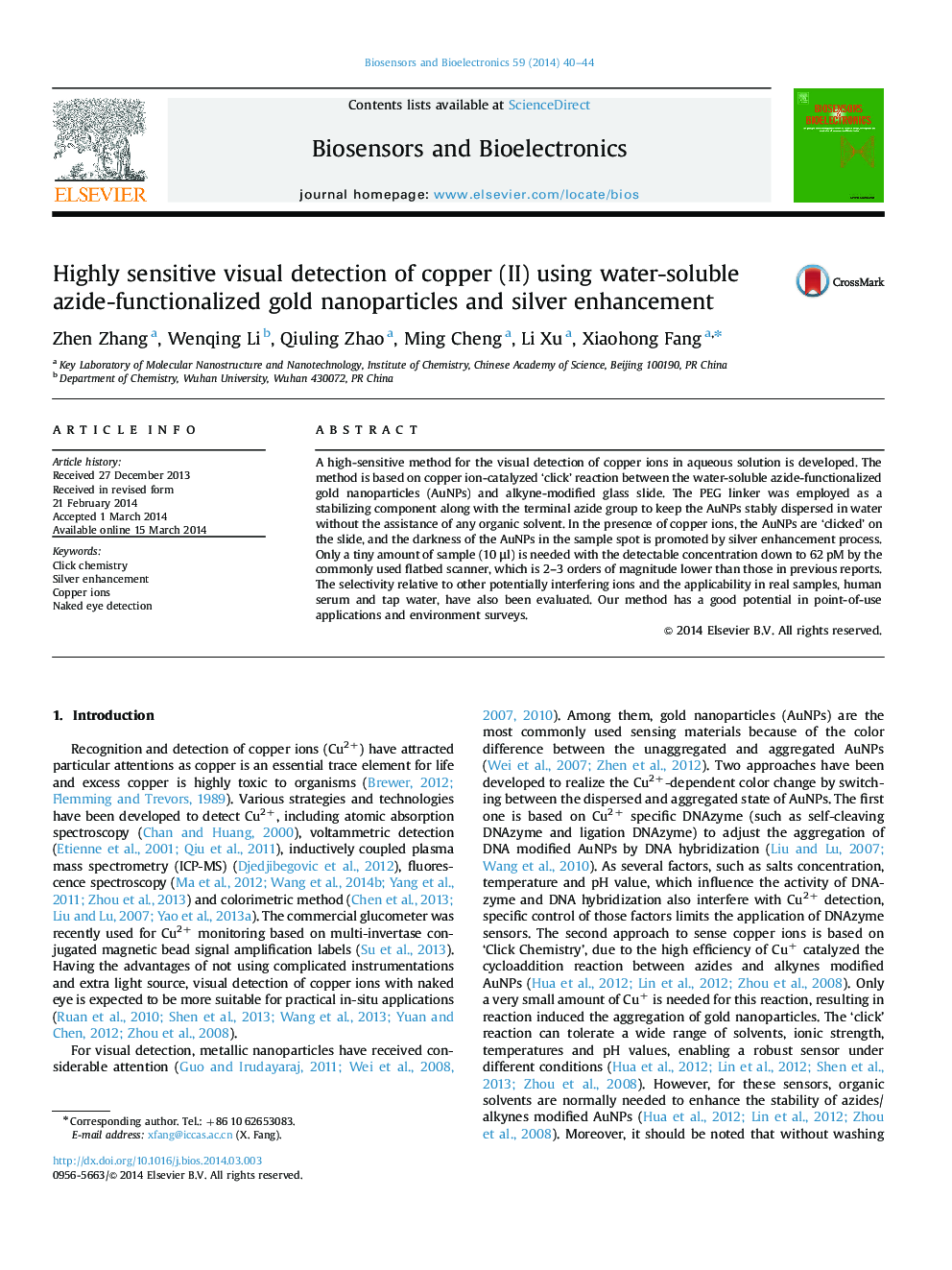| Article ID | Journal | Published Year | Pages | File Type |
|---|---|---|---|---|
| 7233379 | Biosensors and Bioelectronics | 2014 | 5 Pages |
Abstract
A high-sensitive method for the visual detection of copper ions in aqueous solution is developed. The method is based on copper ion-catalyzed 'click' reaction between the water-soluble azide-functionalized gold nanoparticles (AuNPs) and alkyne-modified glass slide. The PEG linker was employed as a stabilizing component along with the terminal azide group to keep the AuNPs stably dispersed in water without the assistance of any organic solvent. In the presence of copper ions, the AuNPs are 'clicked' on the slide, and the darkness of the AuNPs in the sample spot is promoted by silver enhancement process. Only a tiny amount of sample (10 μl) is needed with the detectable concentration down to 62 pM by the commonly used flatbed scanner, which is 2-3 orders of magnitude lower than those in previous reports. The selectivity relative to other potentially interfering ions and the applicability in real samples, human serum and tap water, have also been evaluated. Our method has a good potential in point-of-use applications and environment surveys.
Related Topics
Physical Sciences and Engineering
Chemistry
Analytical Chemistry
Authors
Zhen Zhang, Wenqing Li, Qiuling Zhao, Ming Cheng, Li Xu, Xiaohong Fang,
